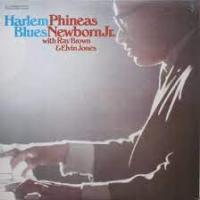-
Posts
4,422 -
Joined
-
Last visited
Content Type
Profiles
Forums
Events
Blogs
Everything posted by Dmitry
-
Talented Boston-based pianist and teacher was hit by a truck when he was changing a tire on his car. www.davidazarian.com
-
Will this be released Stateside as well?
-
Sergeant Egorov and Meliton Kantaria[a Georgian, obviously] did it. Alexei Kovalev scored 2 nice goals the other night. Rangers are doomed.
-
Hey, Red Menace, do you know the names of soldiers that hoisted the red flag on the Reichstag? Let's see some WWII buff spirit.
-
This strange, enclosed world, watered by the great Tigris and Euphrates rivers, was home to a flourishing ecosystem twice the size of the Everglades in Florida. It sustained fisheries, large populations of birds, and rare animals such as the smooth-coated otter. Herds of water buffalo have grazed in the region for most of the 5,000 years that the Madan, or Marsh Arabs, lived among the reeds. Reclaiming an Iraqi Eden Saddam Hussein turned a thriving marshland into a poisoned desert. Can it be restored? By Fred Pearce, Globe Correspondent, 4/1/2003 It has been 10 years since Saddam Hussein began draining the vast bulrush marshes of southern Iraq - home of the Marsh Arabs and sometimes described as the original Garden of Eden. Now, as war brings hope that Saddam will soon be gone, wetland scientists around the world are joining with Iraqi exiles in the United States to plan the rehabilitation of the marshes. The project, which has been discussed only in outline by scientists so far, would be the largest and most ambitious recovery of a wetland ever attempted. It might cost tens of millions of dollars or more, but could be a model for reviving many other natural water reservoirs as the world staves off growing water shortages. Watching TV images of US forces crossing the desert of southern Iraq in recent days, few will have realized that until a decade ago, most of the land between Basra and the Euphrates bridges at Nasiriyah was marshland. It was covered in lakes and a network of waterways hemmed in by huge banks of bulrushes and reed beds. This strange, enclosed world, watered by the great Tigris and Euphrates rivers, was home to a flourishing ecosystem twice the size of the Everglades in Florida. It sustained fisheries, large populations of birds, and rare animals such as the smooth-coated otter. Herds of water buffalo have grazed in the region for most of the 5,000 years that the Madan, or Marsh Arabs, lived among the reeds. Hussein changed all that in 1993 and 1994, when he constructed huge canals to divert the rivers away from the marshes to drain them. Their loss is ''a major ecological disaster, comparable to the deforestation of Amazonia,'' said Klaus Toepfer, director of the UN Environment Program, or UNEP. Hussein argued it would reclaim land for agriculture, but most agree his real aim was to empty the marshes of the Madan, who had risen up against him in the months after the last Gulf War. In that, he succeeded. The Madan now are scattered across the Middle East, and their homeland is a salt-encrusted desert, dotted with burnt-out villages and poisoned with pesticides that Saddam poured into the marshes to kill any remaining life. US troops perhaps can be thankful to Saddam as they drive north. He drained their route to Baghdad. But they have been hampered by the huge sand storms blowing up in the desert left behind by Saddam's engineers. Now thoughts are turning to remaking the marshes. This potential peace dividend is the brainchild of Azzam Alwash, an Iraqi engineer who, as a boy 30 years ago, went duck-shooting with his father on the marshes. He has since settled in California, where, with his wife, Suzie, he has assembled a team of wetlands ecologists, hydrologists and engineers to advise on a marsh rehabilitation project they call Eden Again. The team aims to report its findings in the next two weeks. Meanwhile, Alwash also has garnered support from the US State Department and UNEP, and hopes for funds from the World Bank's Global Environment Facility. He is talking now to leaders of the Madan in exile in Iran, and hopes the final piece will fall into place if a new Iraqi government embraces the scheme. Recreating the marshes will not be easy, Alwash acknowledged. ''The one thing we can't do is just plug up Saddam's canals and let the water flow back into the marshes.'' The desiccated soil now is too fragile for that, he said. For one thing, it's caked in salt. The former freshwater marshes could be poisoned forever if saline water were allowed to fill their depressions in the first flush. Tom Crisman, director of the University of Florida's Center for Wetlands, is a veteran of wetlands rehabilitation projects around the world. ''The job can be done,'' he said, ''but it will have to be a phased approach, starting with small demonstration areas near the main rivers and then working into the center of the marshes.'' The marshlands are composed of three distinct areas - the Hawr Al Hammar marshes south of the Euphrates, a large complex of permanent lakes and marshland between the Euphrates and Tigris, and the Al-Hawizeh marshes stretching east from the Tigris into Iran. Most of the marsh that has survived is in the eastern Al-Hawizeh region, fed by the Karkeh River from Iran. But even that has partly dried up in the past three years, since Iran started filling a reservoir on the Karkeh. According to Hassan Partow at UNEP, another technical adviser to the project, lakes that were permanent features in the region as recently as 2000 are now ''a landscape of parched marsh beds, withering reeds and sterile salt flats.'' At the present rate of decline, he said, ''the remaining marshes are likely to disappear altogether within the next three to five years.'' ''The Al-Hawizeh marshes are probably the last surviving habitat for many of the plant, animal and fish species of the marshes,'' said Mike Evans, an ecologist from Birdlife International in the United Kingdom. Recolonizing the remainder of the marshes will be much harder if they disappear. The first priority, he said, must be to recreate the permanent freshwater lakes. These lakes once contained most of the marshes' rarest species. ''You need a good depth of clear, unpolluted water for submerged vegetation to regrow.'' Will there be enough water? Partow said that in the past decade less water has been flowing down the Tigris and Euphrates. By some estimates, Turkish dams on the headwaters of the Tigris and Euphrates have cut flows by 20 percent. And, perhaps more damaging, they have eliminated the peak spring floods that inundated the widest areas of marsh. With more dams being built all the time, Partow said, ''the whole region is in a water crisis.'' His bosses at UNEP are quietly pressing the countries sharing the rivers - Iraq, Turkey, Syria and Iran - to agree to a water-sharing treaty, once the war is over. Upstream countries like Turkey and Iran should release water from their dams in the spring to mimic the natural flood flows that once filled the marshes, UNEP has stated. But the signs are not good. During a World Water Forum in Japan last month, Turkey was notably hostile to proposals encouraging governments to sign international river treaties. In practice, if Iraq wants to re-create the marshes, it may have to go ahead with what water it has. ''Even with the present amount, it should be possible to do a lot,'' Partow said. ''The key is to reestablish some flows of fresh water through the main marsh areas. After that, there may be a choice between creating one large shallow saline wetland and sealing off some salty areas to create smaller areas of fresher water.'' Will Iraq want to set aside water from the rivers for the marshes? Crisman is not sure. ''It will be a hard sell. We have to show that the marshes are economically valuable as well as ecologically and culturally important.'' But Alwash said he believes that political pressure, and the return of the Madan after the war, may make it happen. ''I used to go hunting and picnicking on the marshes every week with my father. You could travel by boat for hundreds of miles from my home town of Nasiriyah then. My dream is that one day soon I will be able to go again - with my own children.'' This story ran on page C1 of the Boston Globe on 4/1/2003. © Copyright 2003 Globe Newspaper Company. http://www.boston.com/dailyglobe2/091/scie...aqi_Eden+.shtml
-
Is your VG same as the Goldmine VG ? Very Good (VG) Generally worth 25 percent of Near Mint value. Many of the defects found in a VG+ record will be more pronounced in a VG disc. Surface noise will be evident upon playing, especially in soft passages and during a song's intro and fade, but will not overpower the music otherwise. Groove wear will start to be noticeable, as with light scratches (deep enough to feel with a fingernail) that will affect the sound. Labels may be marred by writing, or have tape or stickers (or their residue) attached. The same will be true of picture sleeves or LP covers. However, it will not have all of these problems at the same time, only two or three of them.
-
Just got off the phone w/Mosaic. 6 Ventura/Philips sets left on the shelves. 300 Chico Hamilton sets left.
-
Which albums came out in this awesome series of the 20bit k2 remastered cds ?
-
Valery Ponomarev - PROFILE [pretty good contempo hard bop date] Donald Byrd - GETTING DOWN TO BUSINESS [byrd is mediocre, while Joe is very good]
-
For the risk of being crude...how well do you think he can play after 30 years of absence and not practicing or having an instrument to practice on? They say William Parker sent, or will send him a bass. A hypothetical question from a non-musician. Has there been a case of someone coming back after, let's say after 20 years of inactivity, and making it?[in jazz, of course]. Depends what music they play, also, I guess.
-
This place is happenin'.
-
The only time I watched the Millionaire show happened to be when a question was asked after whom Birdland was named. Dude called his friend, music "expert", and the friend said Louis Armstrong. What a dummy.
-

I need more John Hicks (recommendations)...
Dmitry replied to Rooster_Ties's topic in Recommendations
He gigs frequently in NY, I have seen him many times; he's a very talented and versatile pianist, as you know, but not all of his records are on the same high level, imo. That being said, the recent Sonny Clark tribute disc is pretty good. -
You're talking about the Vito Price disc, right? It's one of those topics that perished in the Great Blue Note Purge of 2003. Nice swing record, made when Basie was gging in Chicago, with Freddie Green and some other cats from the Basie orchestra, not anything essential, imo. Mine is the Fresh Sound issue, I believe it recently came out in the mini-lp incarnation. Sound's all right.
-
I never had a digipack break when dropped. Jewel cases, otoh... Verve Master Edition digipacks suck bollocks.
-
Everything gets damaged easily if you don't take care of it. Except for THE BOX, of course.
-
I like digipacks. What's not to like?
-
Thanks. I'll check it out. Saw it at the used cd place the other day, and it looked like one of those European digi-packs.
-
How's the McFarland-Kuhn disc? Is it similar to Gil Evans' arrangments?
-
Which Russell disc is it? George?
_forumlogo.png.a607ef20a6e0c299ab2aa6443aa1f32e.png)
